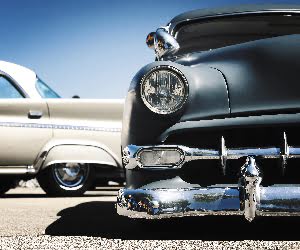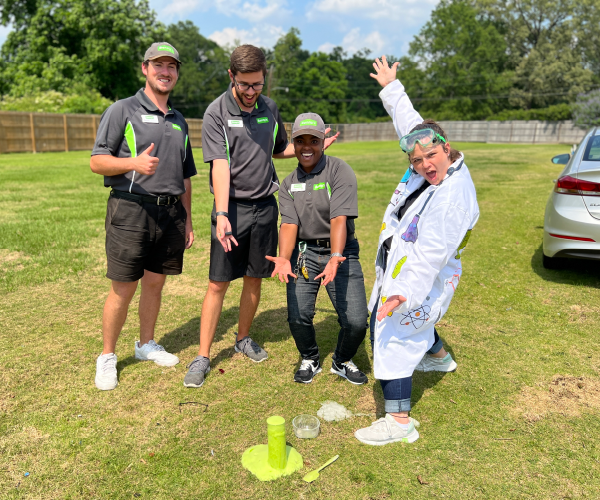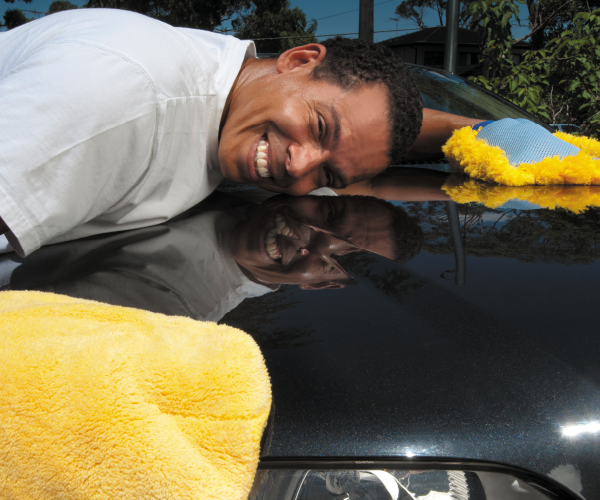
WaterSavers - The Value of Partnerships
July 2, 2015
4 minute ReadAll American Car Care Super Centers has two locations — with a third under construction in Wichita Falls, Texas. This part of Texas, as with many other parts of the state, has been hit hard by massive droughts. These droughts hit all businesses to some extent, but almost none more so than the area car washes.
Because they knew this could be a recurring issue, All American Car Care Super Centers made a decision three years ago to become part of the WaterSavers program. Jim Cadotte, general manager, said, “We recognized early that in order for us to be in this business, it made good financial and business sense to conserve a resource we use. We also felt it was important to leave as little a footprint on the environment as we could.”
Implementing the WaterSavers program prompted the team to look at every aspect of how their washes worked, from the chemicals they used to the systems they put in place. “We changed our business model,” Cadotte said. “WaterSavers gave us the opportunity to get educated. We attend conventions every year to learn even more about what we can do on our end to conserve water and decrease our environmental footprint.”
While being part of the WaterSavers program has changed the organization’s business, they had to convince their local government just how effective the program is. When the drought was near its peak, All American Car Care Centers had to work exceptionally hard to begin building an alliance and partnership between Wichita Falls car washes and the city.
“We were the low-hanging fruit for the city, really,” Cadotte said. “Restaurants in our area were using much more water than we were, but because they were national chains and we were locally owned and family operated, we were the low-hanging fruit when the government wanted to enforce cutbacks.” Those cutbacks included shutting down the washes for multiple days per week. “It started with one day a week, then two days,” he said. “There was then a push to close all car washes in our community entirely. We fought it for three years.”
How did All American start to change the perception about their water use? It was all about education.
At a public meeting, city officials quoted numbers about the massive amounts of water they believed were being used by the car washes. “I asked them where they got those numbers,” Cadotte said. He was confident their numbers were incorrect and grossly inflated.
How could he be so confident? He had spent hours digging up the water usage data for all the city’s car washes from the last two years. He let the officials know how wrong they were. When they questioned his source, he shared that he’d pulled everything from public record, then handed out copies.
“They were red-faced and embarrassed,” Cadotte said. “Goes to show how perception overrules reality. They were making judgments based on perception without ever doing homework to get the facts.”
And that’s not something Cadotte is comfortable seeing. “Let’s let the facts drive policy,” he said.
All American’s next course of action was to turn their attention on a public-education campaign. “We took half of our ad budget to run commercials with facts about water consumption and conservation related to the WaterSavers program — we were in education mode,” Cadotte said. “We were also in the media to talk about our conservation measures. We wanted to convey that this is a philosophy and mindset for our business. We used the WatersSavers logo and information in all of our advertising.”
The public education campaign worked. In 2011, at the height of the drought, a local news station conducted a poll, asking whether car washes should be closed. At the time, 97 percent said yes. In 2013, after All American’s advertising campaign, the same station conducted the same poll. This time, 65 percent of people said no, and respondents stated facts shared in the All American ad campaign about the WaterSavers program to support their position.
All American also focused on businesses and leadership groups, as well as city leaders, including every city councilman, the public works department and the mayor. Cadotte brought everyone to the wash locations so they could see the WaterSavers system in action. It worked. Prior to their educational ad campaign, city leaders voted 7-0 for putting car washes under restrictions. Three years later, the vote was 4-2 in favor of keeping car washes open.
“Fortunately, we’re now in a good place,” Cadotte said. “This educational process — for us and the public — really endeared our customers to us. They came to us because we believed in transparency.”
Cadotte has received calls from other parts of the country from businesses who want to learn more about All American’s success with the WaterSavers program. “I’ve had requests from groups all over who want me to come out to visit their location,” he said.
This experience was a challenge, and continues to be a work in progress, but things are moving in the right direction for All American’s partnership with city officials. “This work was all about education and transparency,” Cadotte said. “We gave our city leaders the opportunity to do the right thing, and in the end, they did. It’s great to see that ultimately we won out.”








